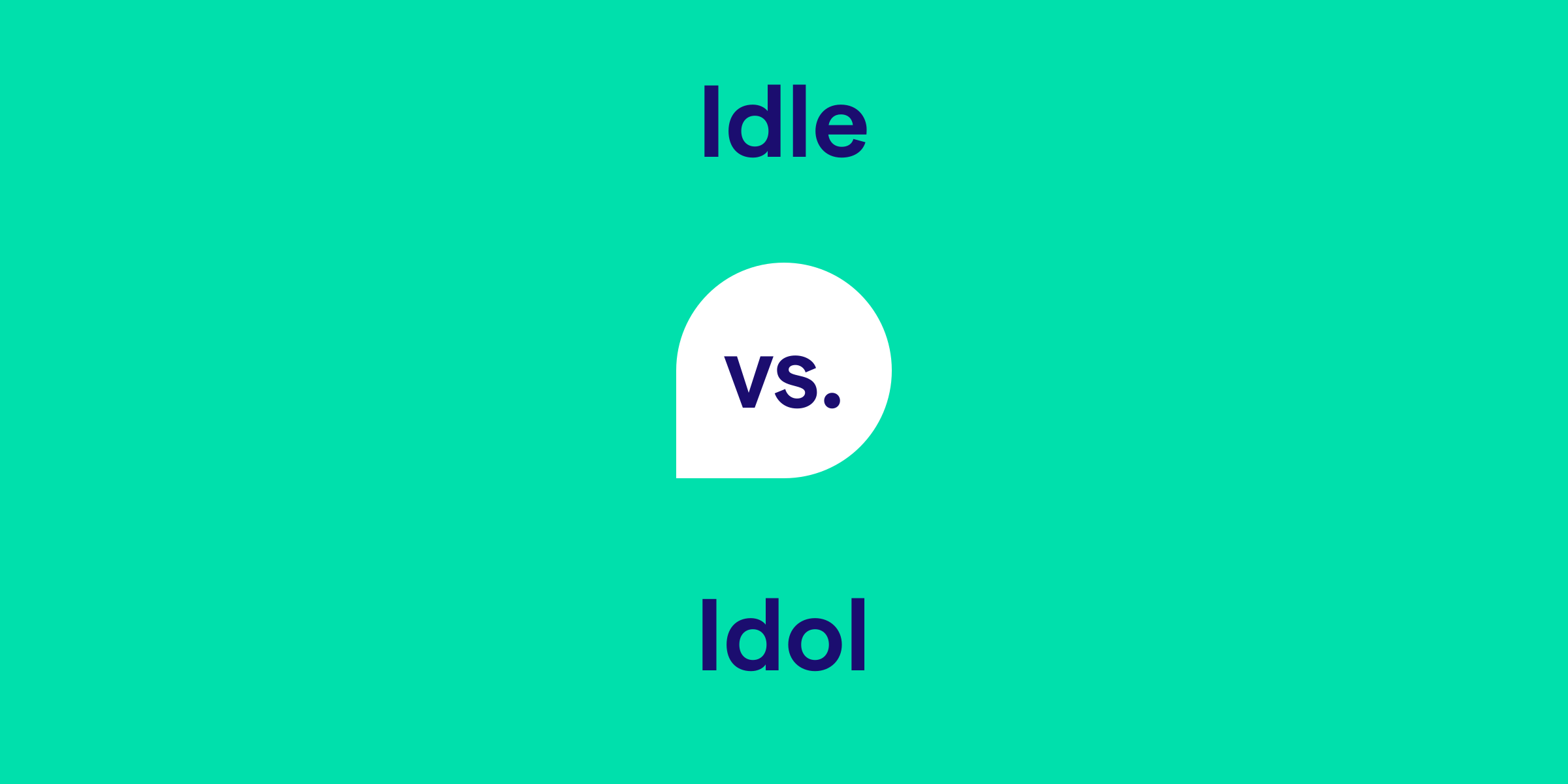Idle vs. Idol: What's the Difference?
The words idle and idol are homophones, meaning they sound the same but have different meanings and uses. Idle refers to a state of inactivity or not in use, often associated with wasting time or a lack of movement. Conversely, an idol is a representation or figure worshipped as a god or revered figure, or it can be used figuratively to describe a person that is greatly admired or loved.

How do you use the word idle in a sentence?
Use the word idle when you want to describe something that is not active or working, is doing nothing, or is not being used. It can be applicable to machinery that is not in operation or to people who are not engaged in any activity and are being unproductive.
Examples of idle in a sentence
- The car has been sitting idle in the garage for over a year.
- I can't afford to be idle with so much work on my plate.
- During the strike, the factory's machines remained idle.
How do you use the word idol in a sentence?
The word idol is typically used to refer to a person who is excessively admired or to an object of worship. In a religious context, it describes a figure or statue that people pray to, and in popular culture, it often refers to celebrities or individuals with a large fan base.
Examples of idol in a sentence
- The villagers bowed before the wooden idol, offering it gifts.
- She has always been my idol, inspiring me to follow my dreams of becoming a singer.
- The rock star was treated like an idol wherever he went.
Idle and idol definition, parts of speech, and pronunciation
Idle definition:
Idle (adjective) - not active, engaged, or being used; without purpose or effect; pointless.
Idle parts of speech:
Idle pronunciation:
/ˈaɪdəl/
Idol definition:
Idol (noun) - an image or representation of a god used as an object of worship; a person who is admired, loved, or revered excessively especially by a large group of people.
Idol parts of speech:
Idol pronunciation:
/ˈaɪdəl/
Idle (adjective) - not active, engaged, or being used; without purpose or effect; pointless.
Idle parts of speech:
- As an adjective: The machinery was left idle after the plant shut down.
- As a verb: He idles his time away scrolling through social media.
Idle pronunciation:
/ˈaɪdəl/
Idol definition:
Idol (noun) - an image or representation of a god used as an object of worship; a person who is admired, loved, or revered excessively especially by a large group of people.
Idol parts of speech:
- As a noun: The ancient temple had many idols scattered across its grounds.
- As a noun (figurative): The athlete became an idol for aspiring young sportsmen.
Idol pronunciation:
/ˈaɪdəl/
Idle vs. Idol in a nutshell
In essence, idle conveys a lack of action or productivity, which can apply to people, objects, or situations. In contrast, idol is rooted in admiration and worship, referring to either a tangible object of religious significance or a person holding a high status of adoration. Knowing the distinction between idle and idol is essential for clear and effective communication, as their homophonic nature can cause confusion in speech, though rarely in writing due to their distinct contexts.
Get AI Writing Assistance Wherever You Type
Make sure your vocabulary is on point and every punctuation mark is in the right place, no matter where you’re working. Grammarly works across more than 1 million websites and apps so you can improve your writing without copying, pasting, or breaking focus.

More Commonly Confused Words
Interest piqued? Pore (not pour) over other commonly confused words to help your writing reach peak (not peek) performance.